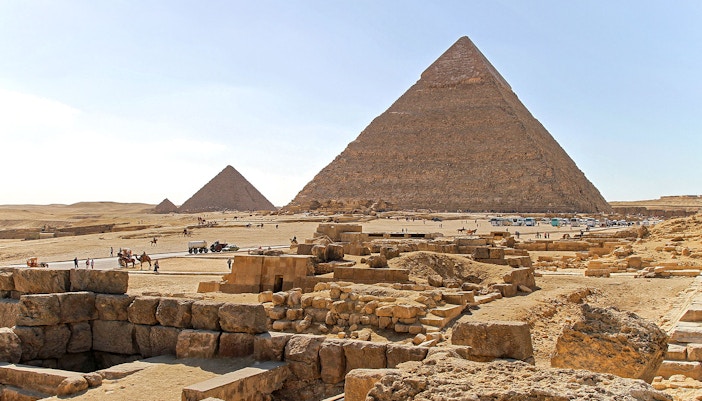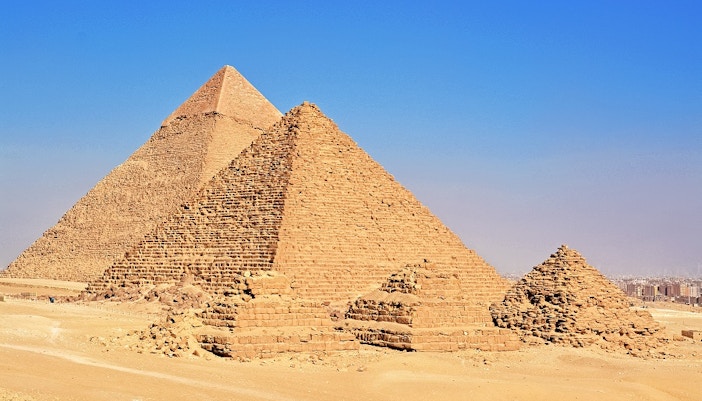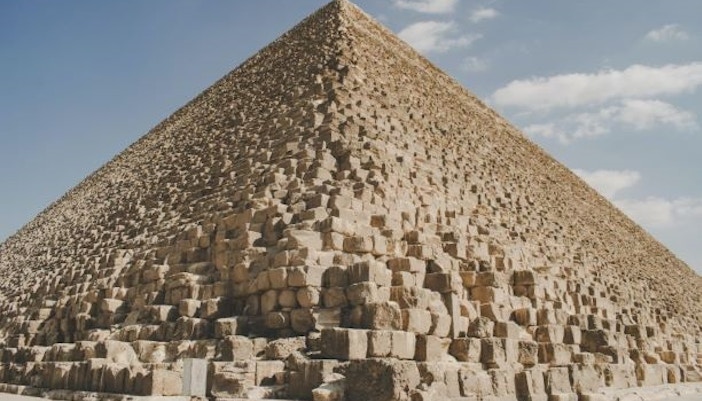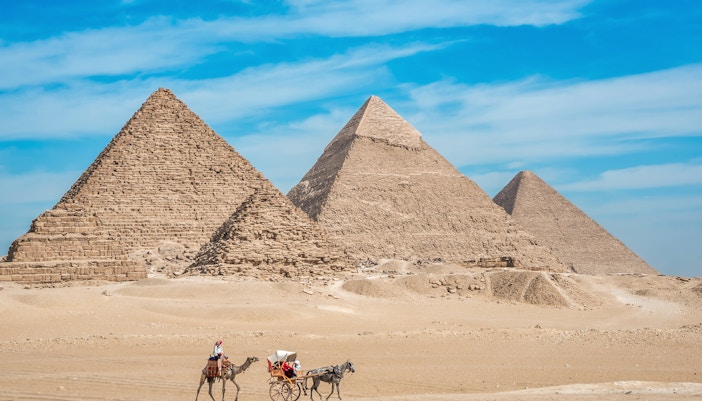The Great Pyramid is the only surviving Wonder of the Ancient World, built for Pharaoh Khufu. Four and a half millennia later, it’s still standing strong.
12 facts about the Pyramids of Giza
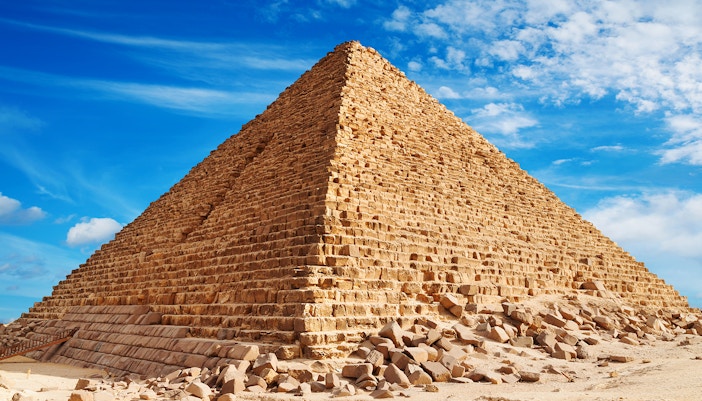
The last Wonder standing
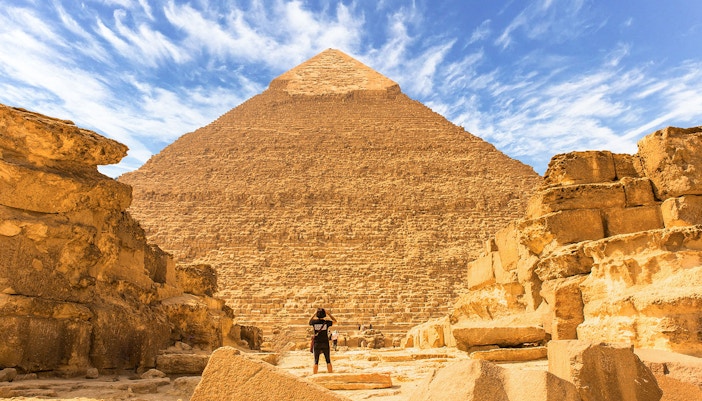
Star-struck design
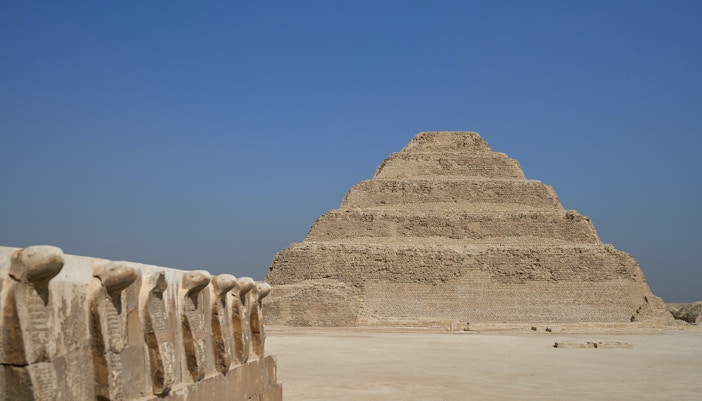
Millions of blocks, no machines
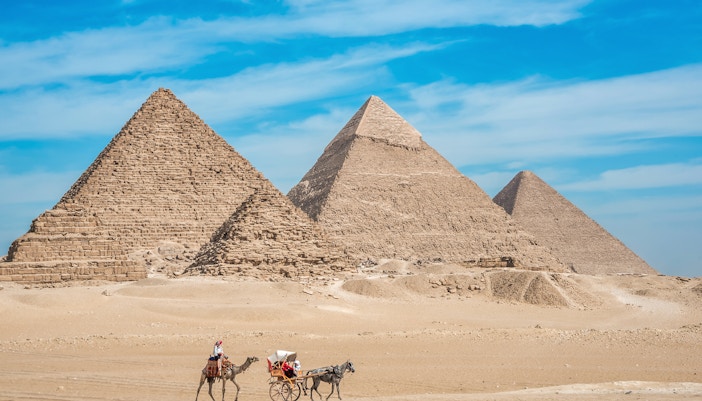
World’s tallest, once upon a time
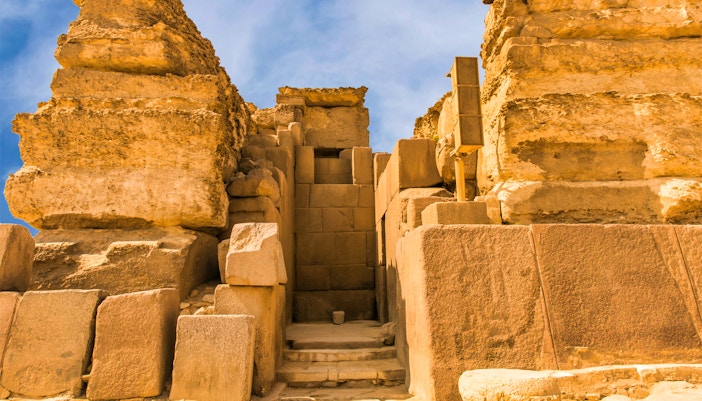
Mortar mystery
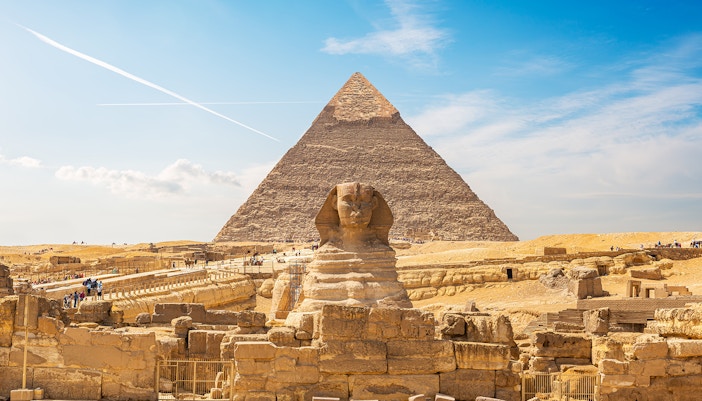
Not built by slaves
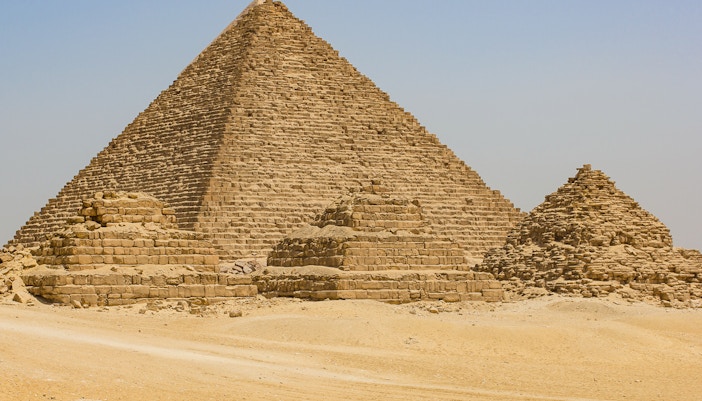
A coffer too big to move
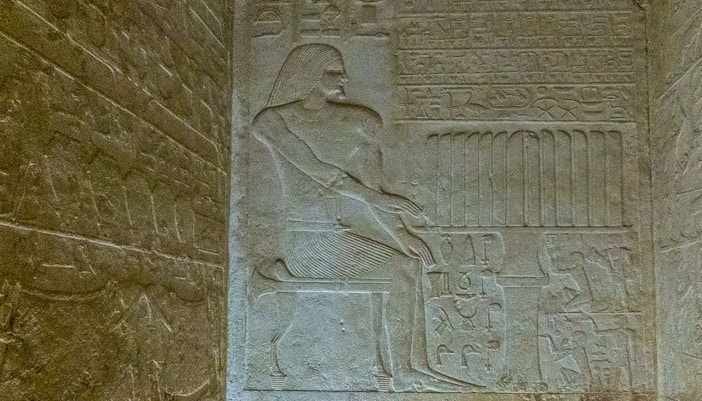
Built for eternity
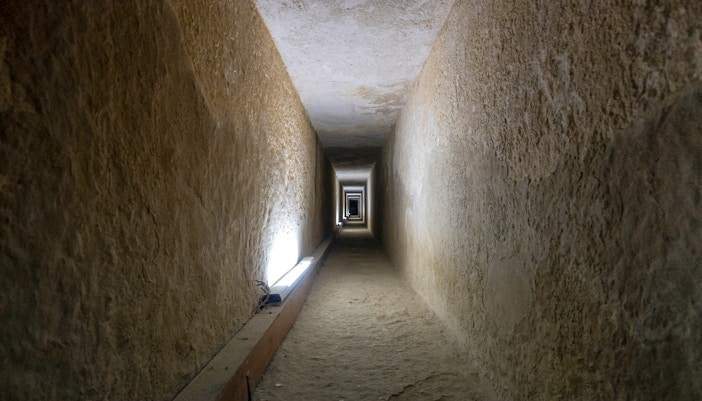
Cooler inside than outside
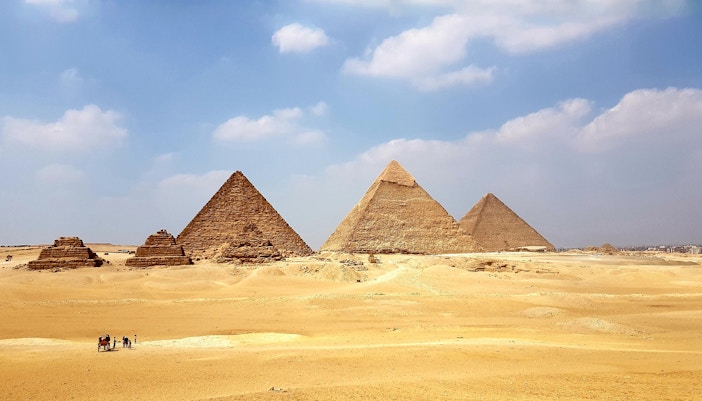
Shining white giants
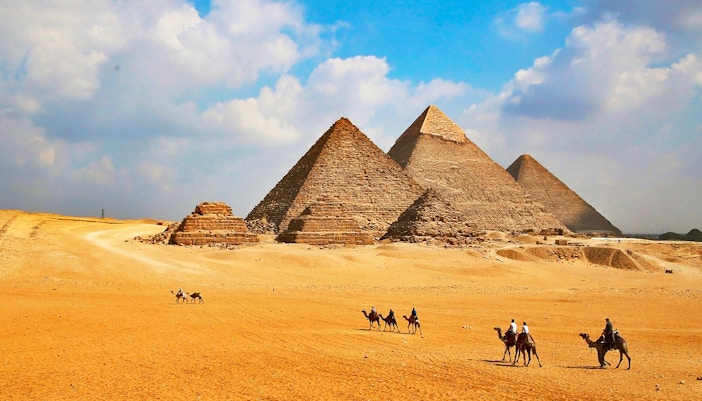
A time-telling monument
